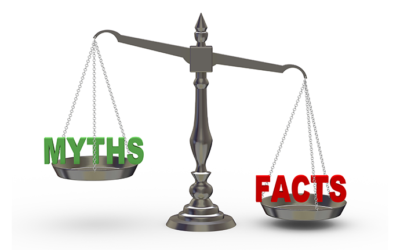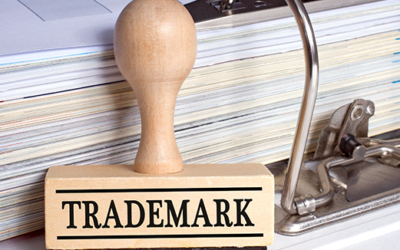Whether you are a new business owner or have been in business several years, a commercial lease is most likely going to be one of your largest expense. It is well worth your while to negotiate the lease terms. It is highly recommended to have an attorney review the lease, not only to help you bring down future costs, but more importantly, to try to limit your liability which can be severe in certain situations.
Top 10 Clauses to Watch For
1) Pricing
First, compare rents to other local locations and see if your space is competitively priced. If not, this may be a good negotiation starting point with the landlord. But be sure you’re not comparing apples to oranges. There are many factors that go into pricing. For instance, the number one factor is location. You can’t directly compare a high traffic space to one with low traffic. Second, look at the condition of the space. Will it need a lot of work or is it in ready to open condition. Third, is it ready to go for sprinklers, security, internet etc? This can save you time and money during the build out phase.
2) Gross vs. Net Leases
There are different ways that Landlords can set up a commercial lease. A Gross Lease means what you pay is what you pay and you are certain of your rent from month and year to year. All expenses including CAM and Taxes are included in your monthly rent. Under a Net Lease the tenant will pay expenses such as insurance, CAM, taxes etc. on top of the monthly rent. If your lease is a Net Lease, be sure you go through the extras with a fine tooth comb. You don’t want any surprises in your rent bill.
3) CAM and Taxes
When looking into the price of the space be sure to look at all the “extras” besides your rent. These can add up quickly and each landlord charges differently for these. Be sure to look at these fees along with the base rent when comparing the cost of spaces. The most common extras are included in CAM. This is “common area expenses.” Depending on the lease terms and the property this can be minimal or extensive. Sometimes it’s a flat rate and sometimes it’s a per square foot charge. This often includes items such as landscaping, snow removal, sidewalk maintenance, landscaping, sprinklers, parking lot maintenance, vestibules and the like. Some landlords pass the real estate tax fees to their tenants directly. The tenant will have no control over these fees and they can be extensive.
4) Term and Renewal
If you are getting a steal of a deal then a longer lease term and more options for renewal may benefit you. This is true in a lot of locations in the current economic downturn. But keep in mind that your business, and possibly you personally, may be liable for unpaid rent often for the entire term. If you are a brand new business and not sure how things will go, then a shorter terms with more renewal options may be the better way to go.
5) Renewal Notices
I’ve had several clients get trapped by this one. Pay attention! You must give proper notice to renew a lease and take advantage of your option to renew. The same goes for cancelling a lease. I’ve seen notice periods as long as 6 months to a year prior to lease end. If you don’t give proper notice to your landlord you may still be able to renew the lease. But if the landlord knows he can get a higher rent if you are gone then you may have missed your chance.
6) Personal Guarantee
Be wary if you are asked to sign a personal guarantee. If you do and the business goes under or you can’t pay the rent, then the landlord can go after you personally to satisfy the rent payments. There are ways to negotiate this.
7) Partners
If there is a personal guarantee, then all partners should be listed. You will most likely be held jointly and severally liable for the debt. That means they can hold one, or all of you, liable. Whoever can pay is who they go after to satisfacty the debt. This too can be very dangerous. You also need to have a very well written shareholder agreement or operating agreement to address this.
8) Tenant
Be sure your business is the tenant by signing properly and listing it as the tenant and not you personally. Do a proper resolution by the business authorizing you to sign the lease.
9) Measure
I always tell clients to take the space rendering often provided by the landlord and a tape measure and go to the space and double check all the landlord’s measurements. You are paying per square foot. How do you know they are accurately reporting the square footage. I’ve recently had one client discover a 500 foot discrepancy after I urged them to measure the space. 500 feet x rent and CAM x the number of years on a lease adds up to an astounding amount of money. But also, when they were comparing spaces to others available in the area it can also make a big difference. Even a few feet can add up over time. Why pay more. Some landlords measure to the middle of the space behind the walls and include the wiring space as part of the overall square footage. Know what you are getting.
10) Escalation
Your rent may sound great but look at the escalation costs. How much is the rent going up each year and each renewal term. Consider this as well as how much will the extras such as CAM and taxes also be going up?
Signing a commercial lease is a big deal and you do need an attorney to help protect you. These are just the top 10 but there are several more areas that an experienced attorney would know what to address. It’s not like a personal lease. Businesses are not afforded the same protections from a bad landlord. Do your home work. Research rents, look at the details, ask other tenants about the landlord, check on the landlord, you can call the village or chamber and see if they have an opinion on them. Each lease negotiation is very unique. I’ve never seen two that were the same, but the themes run through all. Check them out and protect yourself as much as possible. Some landlords will work with you while others won’t. Above all, if it’s not right then don’t be afraid to walk away and move on.
The commercial lease is going to be one if not the biggest expenses and source of liability for your business. Take your time, don’t rush in and hire an attorney. A good attorney can save you more in rent and liabilities than what they are charging you in fees.
Please feel free to email or call with any questions.
AMC Legal, P.C. 630-590-3640 info@amclegal.net
This is not legal advice and you should seek the counsel of an attorney.





0 Comments